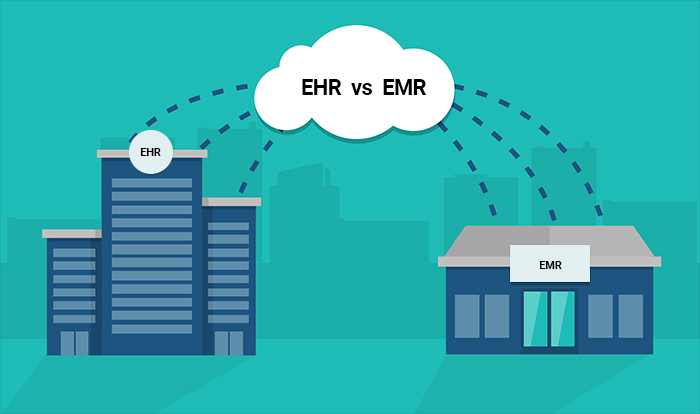
EHR and EMR have been in our vocabulary for nearly 20 years. Since the 1990’s, clinical environments have increasingly relied on technology to function and improve patient care. Today, our methods are becoming incredibly sophisticated, particularly following the application of Stage 3 of Meaningful Use in 2016. Because of this, it’s important to take a look at a commonly misunderstood distinction: EHR (electronic health records) and EMR (electronic medical records).
The Basics of EHR vs EMR
Back in 1995, one could arguably use EHR or EMR interchangeably. This is because electronic medical records systems were just that: an electronic version of the medical chart. But as the years have gone by, our technological functionality became more robust, stretching far beyond the exam room or even the clinical setting. In fact, it’s very common now for the patient to have access to their own records, physician communication, and more all from within their home.
It is for this reason that the Office of the National Coordinator for Health Information Technology (ONC) has made a detailed study on EHR vs EMR.
How Records Systems Affect Different Parties
One way to better understand records systems in healthcare is to consider how those systems affect different parties. Let’s take a look at EHR vs EMR systems in terms of three different major parties in healthcare.
Patients – Improving patient outcomes is one of the largest and most important objectives of healthcare records systems. Patients rarely cross paths with EMRs. However, they are affected by them through follow-up exams, regular checkups, and other indicators over time. EHR systems, on the other hand, enable the patient to view their health reports, contact their healthcare providers, view referrals, pay their bills, and much more.
Providers – For providers, records systems not only help to improve patient care through improved data accuracy and alerts such as medication contradictions, but they also help to close gaps in communication and improve clinical workflow efficiency. This is true for both EHRs and EMRs, but the advantage an EHR has over an EMR for physicians is its ability to communicate information beyond the practice to patients, specialists, hospitals, and more. EHRs “move with the patient,” as explained by the ONC, as opposed to staying solely inside the walls of one practice.
Vendors – While vendors are responsible for providing a health records system, requirements for those systems can change over time, especially for certified EHR technology. EMRs are no longer sufficient to support a medical practice and its patients. Instead, EHR systems enable vendors to offer comprehensive, customizable services to medical practices that include everything from billing, to charting, to scheduling, and more, all while staying abreast of federal requirements like HIPAA and Meaningful Use regulations.
In the end, EHR systems are a direct reflection of how far technological advancements have taken the industry of records systems in healthcare. What once was simply an electronic version of a chart has become a real-time reflection of a patient and their health. This makes an EHR more powerful to the benefit of all parties involved, but in particular, to the patient.
At ZH Healthcare, we don’t just believe in offering great EHR services. We believe in providing our partners with comprehensive HITaaS (Health IT as a Service) systems that respond to the technological needs of medical organizations.
Our certified systems like blueEHR provide medical practices with the complete support that we believe all records systems should provide, from ePrescription, to scheduling, to messaging, and much more.